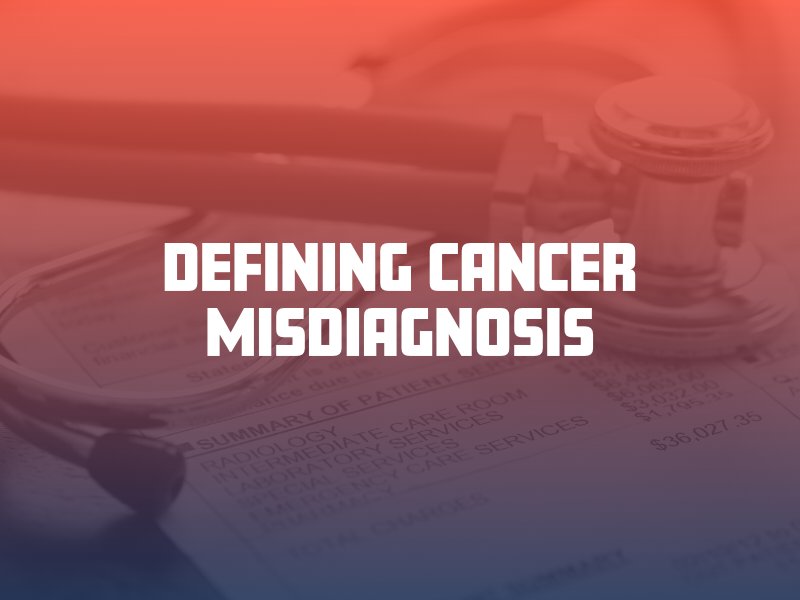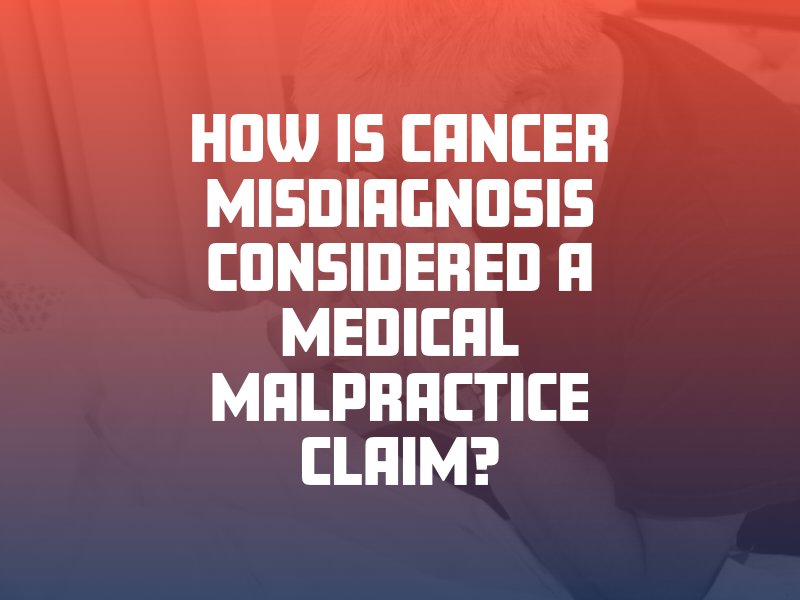Finding out that you have cancer is devastating, but you trust that your health care providers will do everything possible to help you. Discovering that you are a victim of a cancer misdiagnosis – whether a doctor incorrectly identified the disease or dangerously delayed your cancer diagnosis – can increase the amount of stress and damage caused to your life.
If you experienced a diagnostic error related to a cancer case in Albuquerque that resulted in injury or harm to you or a loved one, contact an Albuquerque medical malpractice lawyer at The Fine Law Firm for a free discussion about your legal rights. You may be entitled to financial compensation.
What Is a Cancer Misdiagnosis?
A cancer misdiagnosis refers to the failure of a health care provider to correctly identify cancer by mistaking it for another medical condition, giving the patient a false positive result or failing to diagnose the cancer at all. Cancer misdiagnosis can lead to delayed or unnecessary treatment, worsening the patient’s prognosis.

Cancer misdiagnosis in Albuquerque is often a form of medical malpractice that can give rise to legal claims if it can be proven that the oncologist or health care provider was negligent, or failed to meet the medical standards of care.
Types of Cancer Misdiagnosis
A misdiagnosis of cancer can refer to many issues and mistakes made during the diagnostic process. Any type of diagnostic error can greatly affect a cancer patient by interfering with the proper and prompt treatment of the actual disease.
Types of cancer misdiagnosis include:
- Misclassification of disease: a health care provider incorrectly determines that the patient has a disease other than cancer, such as mistaking lung cancer for a condition such as bronchitis, or diagnoses the wrong type of cancer.
- Failure to diagnose: failing to detect cancer when it is present in a patient, potentially due to misinterpreted test results or the failure to correctly identify symptoms. The failure to diagnose can allow the disease to progress and worsen, reducing the likelihood of successful treatment.
- False positive diagnosis: a doctor telling a patient he or she has cancer when this is not the case. This can cause immense emotional and psychological trauma, as well as the cost and toll of unnecessary treatments, such as chemotherapy or surgery.
These medical mistakes are generally preventable. They are more likely to occur when a health care provider is negligent, or fails to act in a way that a reasonably skilled provider would have under the same circumstances.
What Types of Cancer Are Most Often Misdiagnosed?
Although a careless, negligent or incompetent medical practitioner could misdiagnose any type of cancer, certain types are more prone to diagnostic errors than others based on their presentation, symptoms and challenges in detecting them.
These include:
- Breast cancer: a lump in the breast may appear as a benign cyst or breast infection and be misdiagnosed if the doctor fails to order follow-up testing, such as a mammogram.
- Lung cancer: cancer of the lungs may be mistaken for a less serious medical condition, such as asthma, bronchitis or pneumonia.
- Colorectal cancer: symptoms of colorectal cancer could be mistaken for conditions such as hemorrhoids or irritable bowel syndrome.
- Ovarian cancer: often misdiagnosed as gastrointestinal issues or ovarian cysts, especially if the doctor does not follow up with a cancer screening.
- Pancreatic cancer: early symptoms could lead to a misdiagnosis such as a digestive problem, gallstones or pancreatitis.
- Melanoma (skin cancer): signs of skin cancer may be mistaken for a pimple, rash or benign mole.
Any of these cancers may be negligently misdiagnosed if a physician misinterprets test results, ignores early symptoms or a patient’s medical history, does not properly follow up after initial testing, or does not communicate with other doctors and specialists about the case.
Consequences of Cancer Misdiagnosis
An accurate and timely diagnosis is important for any medical condition, but it is especially critical in a cancer case due to the time-sensitive nature of the disease. When cancer goes undiagnosed and untreated, it can progress past the point of effective treatment.
For example, a patient who may have been able to recover had the cancer been diagnosed sooner could be out of treatment options due to a delayed diagnosis. Suffering a cancer misdiagnosis could lead to immense physical harm, medical expenses, emotional distress and premature death.
A misdiagnosis could lead to the cancer metastasizing, or spreading to other parts of the body. This can reduce the patient’s chances of recovery by restricting treatment options. In the case of a false positive cancer diagnosis, a patient may undergo invasive and unnecessary treatments.
Cancer Misdiagnosis and Medical Malpractice Claims in Albuquerque
Patients who suffer from cancer misdiagnosis may be entitled to financial compensation through medical malpractice claims in Albuquerque. Winning these cases requires thorough documentation, compelling evidence, expert testimony and – in most cases – legal representation.

A cancer misdiagnosis may constitute malpractice if the following is true:
- The accused party (defendant) owed the injured party (plaintiff) a duty of care, meaning a legal responsibility to act according to the medical industry’s standards of care.
- The defendant breached his or her duty of care through an act or omission that a reasonably prudent health care provider would not have committed in similar circumstances.
- The breach of duty caused the plaintiff’s injury or harm, meaning the negative effects would not have occurred were it not for the defendant’s malpractice.
- The cancer misdiagnosis resulted in compensable damages suffered, such as a worsened health condition, increased medical bills, or pain and suffering.
Examples of medical malpractice that may be involved in a cancer misdiagnosis case include delayed diagnosis, failure to diagnose, inadequate testing, lack of follow-up and misclassification of cancer type.
When to Contact an Albuquerque Medical Malpractice Lawyer
The best way to protect your rights as a victim of a cancer misdiagnosis, or the loved one of a victim, is to contact a medical malpractice lawyer to discuss your case as soon as possible. In New Mexico, a law called the statute of limitations gives you no more than three years after the malpractice incident or the date of discovery to file a claim. However, filing sooner can strengthen your case by allowing your lawyer to preserve key types of evidence.
Consult With an Attorney at The Fine Law Firm Today
The right medical malpractice attorney can make all the difference to your cancer misdiagnosis case. Your attorney will have knowledge and expertise regarding New Mexico’s medical malpractice laws to aid in your case. A law firm can go up against any health care provider on your behalf to fight for maximum compensation.
To learn more about a specific cancer misdiagnosis case, request a free consultation at The Fine Law Firm by calling (505) 889-3463. We care about our clients and will do everything we can to help you during this difficult time.




